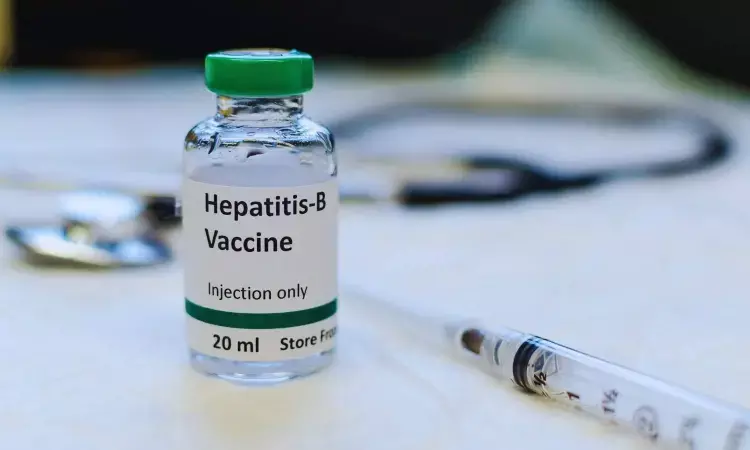- Home
- Medical news & Guidelines
- Anesthesiology
- Cardiology and CTVS
- Critical Care
- Dentistry
- Dermatology
- Diabetes and Endocrinology
- ENT
- Gastroenterology
- Medicine
- Nephrology
- Neurology
- Obstretics-Gynaecology
- Oncology
- Ophthalmology
- Orthopaedics
- Pediatrics-Neonatology
- Psychiatry
- Pulmonology
- Radiology
- Surgery
- Urology
- Laboratory Medicine
- Diet
- Nursing
- Paramedical
- Physiotherapy
- Health news
- Fact Check
- Bone Health Fact Check
- Brain Health Fact Check
- Cancer Related Fact Check
- Child Care Fact Check
- Dental and oral health fact check
- Diabetes and metabolic health fact check
- Diet and Nutrition Fact Check
- Eye and ENT Care Fact Check
- Fitness fact check
- Gut health fact check
- Heart health fact check
- Kidney health fact check
- Medical education fact check
- Men's health fact check
- Respiratory fact check
- Skin and hair care fact check
- Vaccine and Immunization fact check
- Women's health fact check
- AYUSH
- State News
- Andaman and Nicobar Islands
- Andhra Pradesh
- Arunachal Pradesh
- Assam
- Bihar
- Chandigarh
- Chattisgarh
- Dadra and Nagar Haveli
- Daman and Diu
- Delhi
- Goa
- Gujarat
- Haryana
- Himachal Pradesh
- Jammu & Kashmir
- Jharkhand
- Karnataka
- Kerala
- Ladakh
- Lakshadweep
- Madhya Pradesh
- Maharashtra
- Manipur
- Meghalaya
- Mizoram
- Nagaland
- Odisha
- Puducherry
- Punjab
- Rajasthan
- Sikkim
- Tamil Nadu
- Telangana
- Tripura
- Uttar Pradesh
- Uttrakhand
- West Bengal
- Medical Education
- Industry
Chronic hepatitis B virus infection strongly linked to pregnancy-related anemia: Study

A new study published in the journal of Nature Scientific Reports found that anemia was almost three times as common in women with a persistent hepatitis B virus (HBV) infection.
Around 50% of pregnancies worldwide are affected by anemia in pregnancy, which is defined as a hemoglobin (Hb) content in pregnant women that is less than 11 g/dl. Its correlation with maternal illness, death, and unfavorable fetal outcomes highlights its position as a major global public health issue, with a disproportionately high prevalence in impoverished countries.
Pregnancy-related anemia has a complex etiology, with iron deficiency serving as a major contributing component. Other factors include thalassemia, malnourishment, and infectious illnesses like malaria or hookworm infection. This study aimed to find possible risk factors for anemia during pregnancy in this observational study. Renliang Huang and colleagues accomplished this by performing retrospective cohort research and a cross-sectional analysis, with the main outcome variable being anemia during pregnancy.
Nearly, 43,201 pregnant women who were admitted to the Hainan Women and Children's Medical Center between January 2017 and December 2020 had their clinical data reviewed as part of a cross-sectional study. There were notable variations between the two groups when comparing pregnant women with and without anemia in terms of age, hypothyroidism, gestational diabetes, hyperthyroidism, syphilis infection, chronic hepatitis B virus infection, and human immunodeficiency virus infection.
The Declaration of Helsinki's guiding principles were followed in the conduct of this investigation. The Institutional Review Board relaxed the informed consent requirement since the data used in this study was completely anonymized and the individuals were at very little risk.
This retrospective cohort included 129 control patients and 86 instances of chronic hepatitis B virus infection who were recruited from the Hainan Women and Children's Medical Center between November 2021 and January 2023.
The findings of this examination showed a consistent link between chronic hepatitis B virus infection and pregnancy-related anemia, with the latter condition most commonly appearing in the third trimester. Subsequent investigation revealed unique hematological changes, including decreased corpuscular hemoglobin levels and erythrocyte size, among patients with chronic hepatitis B virus infection.
Overall, based on thorough cross-sectional and retrospective cohort studies, this study outlines a clear correlation between persistent HBV infection and an increased risk of anemia during pregnancy.
Reference:
Huang, R., Lu, Z., Li, X., Zhou, D., Xu, J., Lin, D., Fu, Y., Liang, Y., Li, X., Petersen, F., Zhou, Q., & Yu, X. (2025). Positive association between chronic hepatitis B virus infection and anemia in pregnancy in Southern China. Scientific Reports, 15(1). https://doi.org/10.1038/s41598-024-84927-7
Neuroscience Masters graduate
Jacinthlyn Sylvia, a Neuroscience Master's graduate from Chennai has worked extensively in deciphering the neurobiology of cognition and motor control in aging. She also has spread-out exposure to Neurosurgery from her Bachelor’s. She is currently involved in active Neuro-Oncology research. She is an upcoming neuroscientist with a fiery passion for writing. Her news cover at Medical Dialogues feature recent discoveries and updates from the healthcare and biomedical research fields. She can be reached at editorial@medicaldialogues.in
Dr Kamal Kant Kohli-MBBS, DTCD- a chest specialist with more than 30 years of practice and a flair for writing clinical articles, Dr Kamal Kant Kohli joined Medical Dialogues as a Chief Editor of Medical News. Besides writing articles, as an editor, he proofreads and verifies all the medical content published on Medical Dialogues including those coming from journals, studies,medical conferences,guidelines etc. Email: drkohli@medicaldialogues.in. Contact no. 011-43720751


